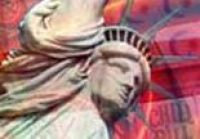A long article in
Rolling Stone, recently mentioned on DoseNation, elaborates on the topic
"How America Lost the War on Drugs". The title makes it seem certain: it's an objective fact, this war has been lost. What I would like to question is this very certainty.
Rolling Stone's article (while being very interesting) is actually one-sided. It presents the War on Drugs mainly from the point of view of behind-the-scenes politics and foreign affairs. However, what makes this war more problematic is that it's much more complicated than just politics. In this particular article,
Rolling Stone fails to notice how deeply drugs are entangled into American culture. The contrast between sometimes shockingly harsh penalties and eye-winking assimilation of drug culture - from psychedelic designs to cocaine-like candies - makes this conflict visible. But something else forms the biggest gap in
Rolling Stone's presentation of the problem: drug users are mostly missing from the picture.
It has been stated many times: drugs don't feel, can't plan a strategy, can't seek safe hiding places themselves. So what is called "War on Drugs" is actually
a war on drug users. I'm not trying to say that Nixon explicitly meant to target them - but in practice drug users have become the most vulnerable target, the real victims of this war.
It has been repeated so many times it's become much of a truism, at least for opponents of the war: the War on Drugs has long been lost, the mafia is doing well (so let's end this tragicomedy). I believe the situation is more complicated, with more shades than just black and white. For sure this war can't be won. A "drug-free America" could perhaps only be possible as a totalitarian state, where we would be controlled every day, not allowed to go anywhere without disclosing the precise reason and time schedule. But does it mean this war has been lost? At least the battle over language has been won.
Let me compare this to a situation geographically closer to me: the debate on abortion in Poland. Together with a very strict law, an equally strict language dominates, a vocabulary where "conceived life" is almost a neutral, official term. In such a situation it's very hard to argue for a pro-choice standpoint, because those who support a woman's right to choose are "child murderers".
Something similar has already happened in the War on Drugs: one side of the debate has stolen the language, forcing others to assimilate to their point of view. How to speak about spiritual use of psychedelics in a language where
psychedelics = narcotics = poison = death, where
psychonaut = drug addict = junkie = social degenerate?
Aren't we already living in a strange hybrid of democracy and totalitarianism? Just think of Andrew Feldmar's case: isn't it totalitarian policy to deny someone access to the United States just because he used an illegal drug many years ago and wrote about it? When officials say that "violation of [laws on] controlled substances" is a "crime involving moral turpitude", I feel so knocked out I can only ask: so what will you call real crimes, like murder or rape? However, if I want to suggest it's nonsense to treat drug use as a serious crime, I have to start with explaining my position, because long ago a totally different language has been forced on us.
So it's not America who has really lost this war. America has neither lost nor won. The real victims are drug users - and culture itself is much of a victim, forced into schizophrenia and hypocrisy. I agree that this fighting line isn't the most important one, that it's much more crucial to put an end to the most socially devastating aspects of the War on Drugs. Historical examples show that it's possible to break the link between drugs and violence. It seems likely that combat will shift in that direction. Joe Tuft, a former DEA attache quoted by
Rolling Stone, is aware that locking up dealers and eradicating coca farms is a Sisyphus' task: "'We're never going to crack this problem without a real demand-reduction program." And what if we don't succeed in reducing demand? Is the United States - and other countries following the American model, and those who are too afraid of American power to introduce liberal laws on their own ground - ready to accept the possibility that some people are going to use drugs and that they maybe even have a right to do so? This is a question that
Rolling Stone doesn't dare ask.






















Snips of Peele's comments:
...From the right, the directors of the National Institute on Alcohol Abuse and Alcoholism (NIAAA) and the National Institute on Drug Abuse (NIDA) have written a plea to return to the term “addiction” – which was replaced by “dependence” in DSM-IV – in DSM-V.
&
But, per my role in that volume, there is no mention of use as a sign of relapse, but only use leading to “clinically significant impairment or distress.” DSM thus takes the radical position that use of any drug can be controlled, including even following a diagnosis of dependence....
See rest at his blog
http://www.peele.net/blog/index.html#071128">[link] Peele is the top researcher in the hoax of "addiction".
The comments posted here do not reflect the views of the owners of this site.